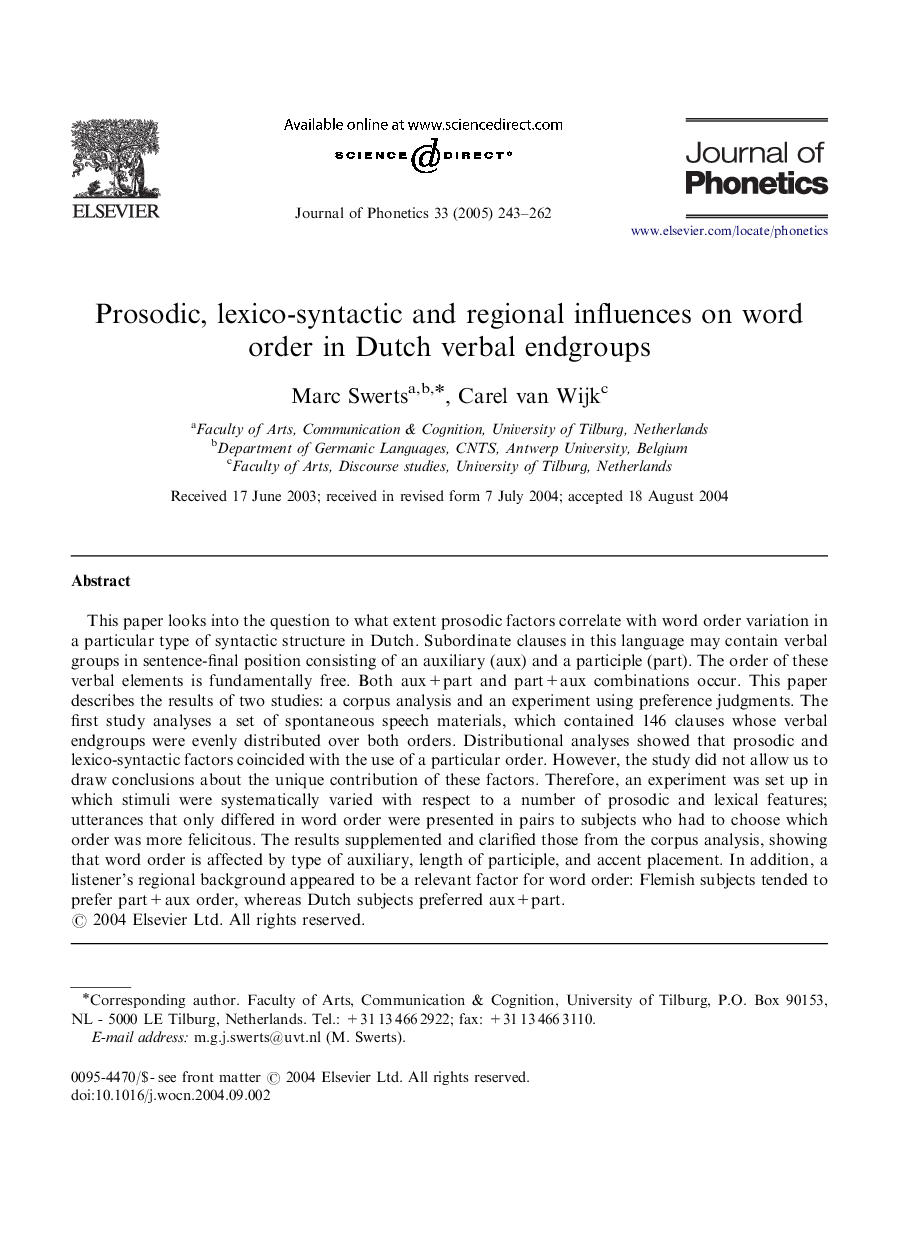| Article ID | Journal | Published Year | Pages | File Type |
|---|---|---|---|---|
| 10519549 | Journal of Phonetics | 2005 | 20 Pages |
Abstract
This paper looks into the question to what extent prosodic factors correlate with word order variation in a particular type of syntactic structure in Dutch. Subordinate clauses in this language may contain verbal groups in sentence-final position consisting of an auxiliary (aux) and a participle (part). The order of these verbal elements is fundamentally free. Both aux+part and part+aux combinations occur. This paper describes the results of two studies: a corpus analysis and an experiment using preference judgments. The first study analyses a set of spontaneous speech materials, which contained 146 clauses whose verbal endgroups were evenly distributed over both orders. Distributional analyses showed that prosodic and lexico-syntactic factors coincided with the use of a particular order. However, the study did not allow us to draw conclusions about the unique contribution of these factors. Therefore, an experiment was set up in which stimuli were systematically varied with respect to a number of prosodic and lexical features; utterances that only differed in word order were presented in pairs to subjects who had to choose which order was more felicitous. The results supplemented and clarified those from the corpus analysis, showing that word order is affected by type of auxiliary, length of participle, and accent placement. In addition, a listener's regional background appeared to be a relevant factor for word order: Flemish subjects tended to prefer part+aux order, whereas Dutch subjects preferred aux+part.
Related Topics
Social Sciences and Humanities
Arts and Humanities
Language and Linguistics
Authors
Marc Swerts, Carel van Wijk,
